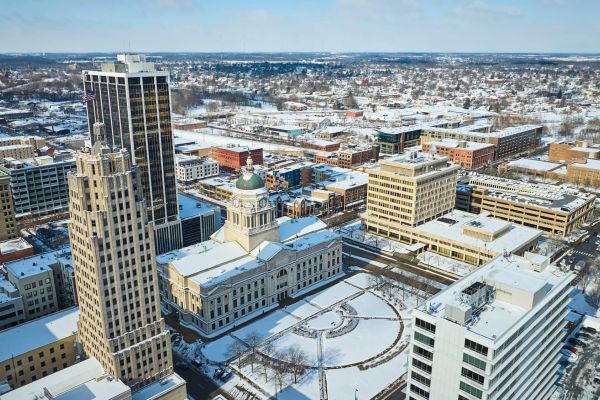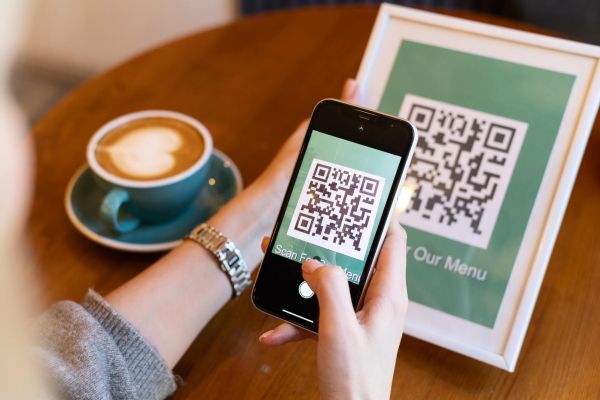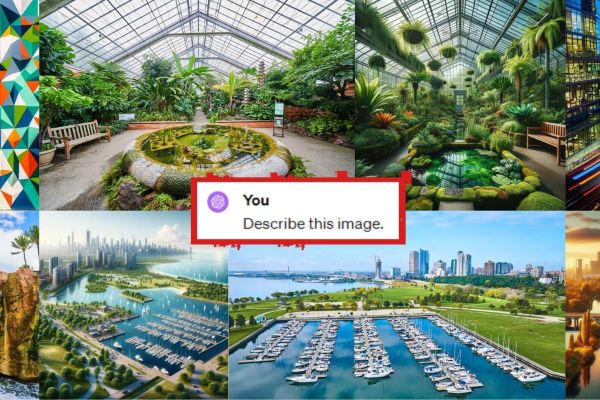How to organize your life
Both physically and digitally
Let’s face it - getting organized is not always easy. We all have clutter in some way or another. Maybe that is physical clutter, maybe it looks clean on the surface but you have one too many “junk drawers”, a “junk closet”, or even a “junk room”. Perhaps your digital organization is, to say the least, lacking. How effectively do you stay on top of the to-do’s you want to do, how in tune are you with the upcoming events in your life so that you don’t cross schedule or forget about them completely?
These are the topics of this blog, as I find myself to be a bit obsessed with all types of organization. My close circle of friends call me “the mom of the group”, because they know they can count on me to send a Google Calendar invite once we finalize plans. They know I will follow up with them individually to coordinate events and make sure they go as planned.
I also like to keep things very tiddy. I am nowhere near a minimalist, but I am pushing that direction as much as possible. Removing excess clutter and minimizing wherever possible.
My blog, Our journey towards ending our plastic addiction, can actually help you save space in ways you might not have thought about. A lot of products waste space (such as laundry detergent and soaps), when their plastic-free alternative is much more compact - and eco-friendly.
That being said, just like most things, it is all about forming habits. Good ones of course! So here we go, here is some of my wisdom from decades of experience keeping organized.
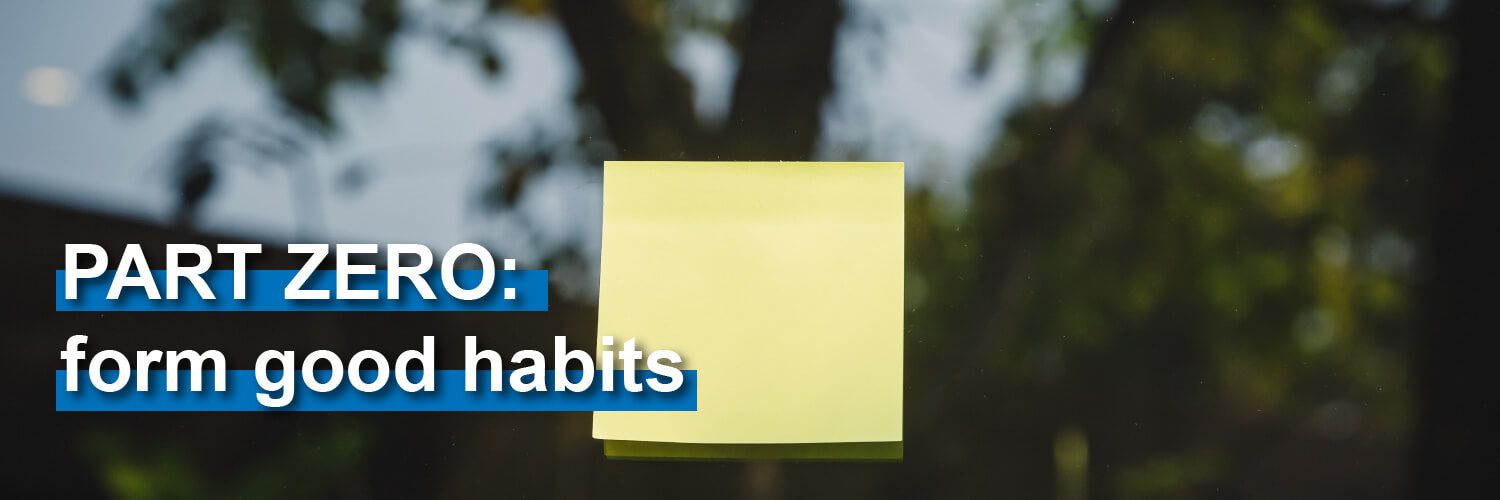
PART ZERO: Form good habits
That’s right, part zero. This is really a pre-step you need to take before you can organize what needs organizing. Anyone can be organized, if they are motivated and commit to the correct habits. The key is to be consistent so that your system is reliable and predictable for you and others.
This will be the most difficult step, as it really is up to you to build this habit in a way that works for you. Start with creating just one system of “notification” that you force yourself to commit to. A daily phone alarm, a sticky note reminder on your bathroom mirror, anything that you can to create that initial “habit” of seeing a reminder and then committing to doing that thing every day. That habit can be as simple as getting caught up on emails or looking at the calendar for the day or next few days.
Once you have this single step down and do it consistently (no excuses!), you are ready to build your arsenal of good habits to get and stay organized.
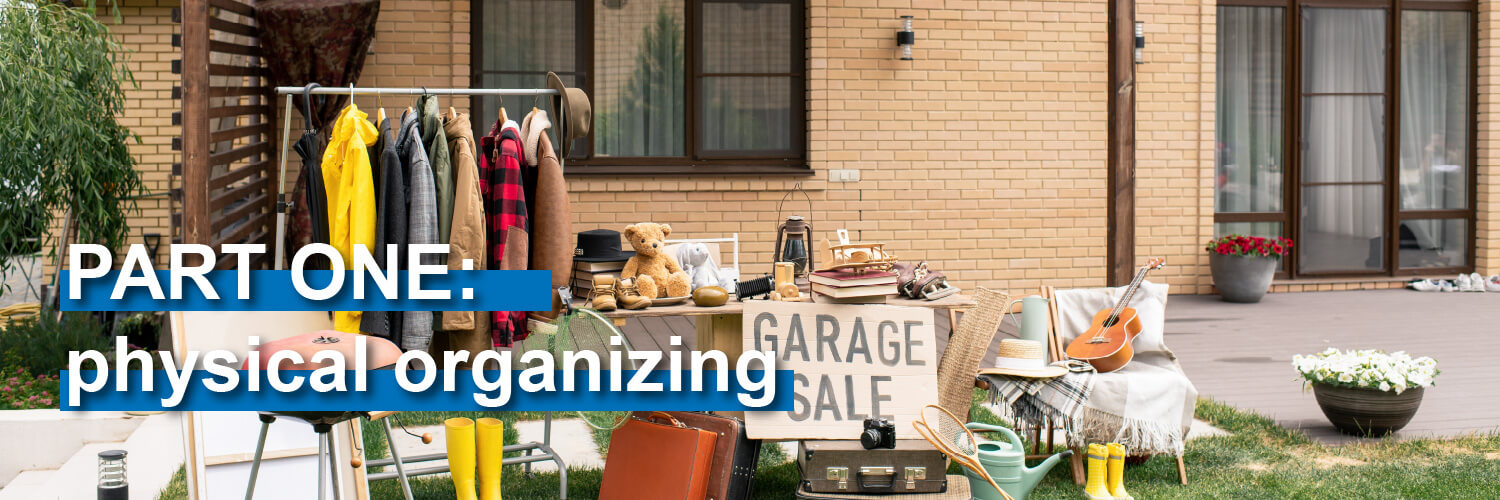
PART ONE: Physical organizing
Very rarely does a large amount of clutter show up overnight. Usually, it's an incremental process: one item at a time. It is easy to disregard that until you suddenly have that dread of immense clutter piling up. Getting everything organized for the first time will get you to a clean slate, but it will just get back to where it was again if you don’t create habits to keep it that way long term:
- Organize a spot for everything so that there isn’t an excuse to “dump” it in those dump spots. Containers and shelves with labels are perfect to organize areas like closets or laundry rooms.
- Set habits to do a quick pickup each day, week, month, and year. For each of those increments, the time commitment reflects accordingly. That daily pickup might just be a quick 5 minutes before work. Each week maybe you spend an hour and really get into it. Annually, you go through everything real deep and find items to get rid of (great to do in the summer around the garage sale season time). One of the rules I learned to think about is whether or not I have used that item in the last 12 months. If not - I decide that I may not need it. Donate it, sell it, or recycle/upcycle it!
All of this is easily said, I know. That is why Part Zero above is so essential. Set reminders that work for YOU and commit fully to making it happen.
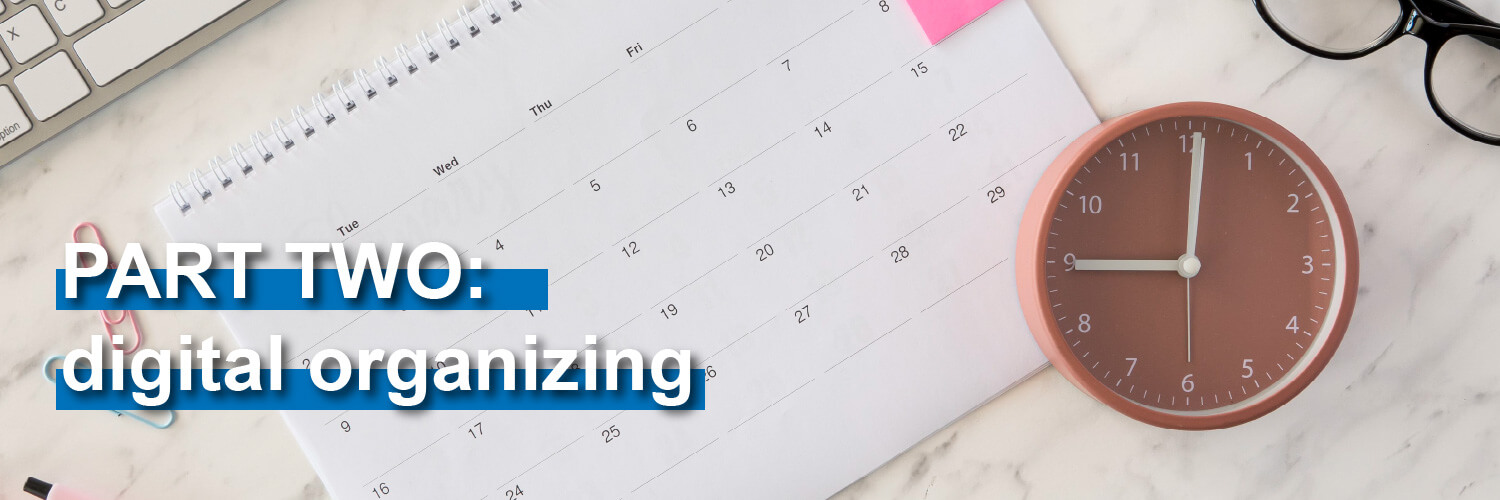
PART TWO: Digital organizing
Physical space is easier, honestly, than digital space. You can see it right in front of you and all around you, but digital is all just crammed into one organized looking device (like your computer or phone).
Other than going through suggestions on how to organize your digital files, which really varies person to person on what works best, the best digital tip I am going to go into is to use a calendar and email. I am a fan of Google Calendar, personally.
If you form a good habit of checking your email every day, and form a good habit of creating a calendar event for everything in your life, you are setting yourself up for success.
Here is the trick - make a calendar event. For. Everything. I mean it! Take advantage of a system that will send you notifications so that you are never counting on your own memory for anything. There is the obvious stuff - work, family/friend events, appointments, and birthdays. Then there are the less obvious stuff - recycle day, check the tire pressure for your car tires, changing a home’s air filter, making the grocery list, watering plants, changing the smoke alarm batteries, pulling in hoses for the winter, etc…I have literally dozens of tasks that are in the realm of “home maintenance” that are very important not to forget - so I don’t let my calendar let me forget.
You can have multiple calendars to separate tasks like Home Maintenance versus Family & Friends. Have shared calendars with your significant other so you aren’t having to both create the same event.
With Google Calendar, I have each calendar set to a default reminder of emailing me that day, as I am always checking my email. You can even send multiple reminders per event (such as 1 week prior, 3 days prior, and that day).
The key to having multiple calendars is to still have them all collect into one view. I have multiple Google accounts for work and personal, but they are all ultimately shared to one account so that all my events can be managed and viewed in a single spot.
This eliminates EVER cross-scheduling. If something new comes up to schedule, simply look in that one spot and you will never have to cancel something. Of course, sometimes things come up that are more pressing, but then you can at least know as soon as possible to let the other event peeps know it is cancelled.
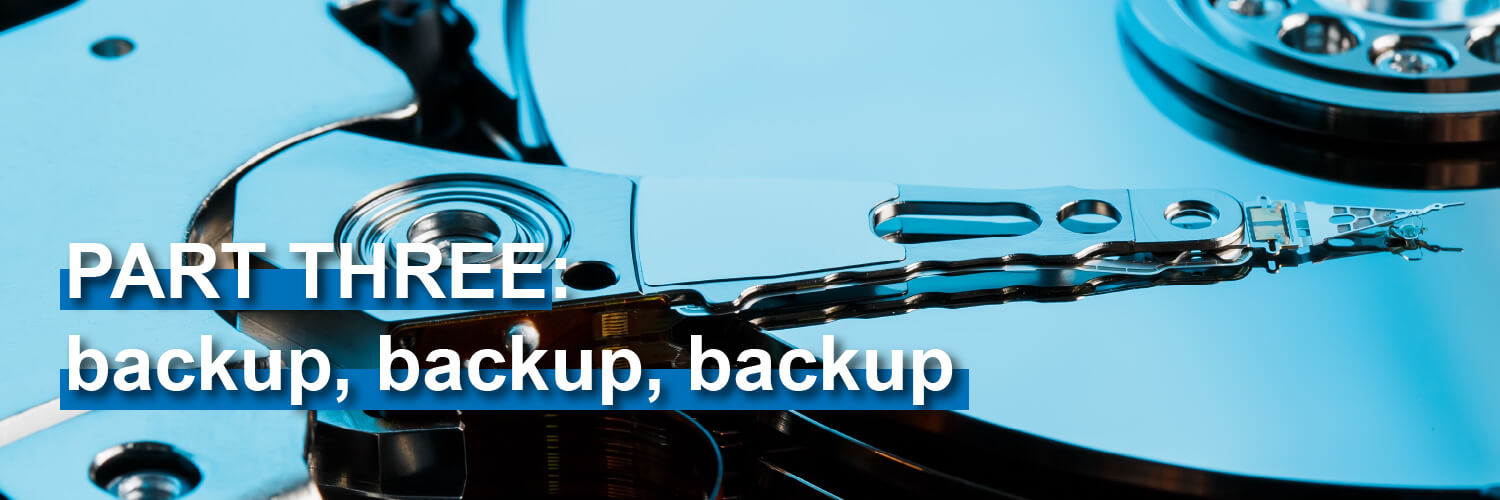
PART THREE: Backup, backup, backup
This goes a bit with digital organization but is about managing backups. It is very important to keep backups of important data. The stories I hate to hear are about how someone lost all of their family photos due to their basement flooding. That was before everything went digital. Now, you hear about things like a laptop harddrive crashing and losing everything.
Create a monthly or quarterly calendar reminder to make a full backup of the things that matter to you:
- Photos & videos on your phone
- Files on your computers and laptops
- Emails and Calendars - such as using Google Takeout to easily and automatically get backups of those files
Then, most importantly, find a safe place for that backup. Ideally, a safety deposit box. Secondarily, any safe place away from where your files are (aka - don’t keep your only backup at home). Swap backups with a close family member so that you are each a redundancy plan. Of course, it doesn’t hurt to have a couple backups either (one at home and one off site), so that if you need something on the backup you have one at hand.
WELL...GO GET ORGANIZING!
These are definitely just a few quick tips to get you started, with a lot more detail I could certainly go into. Just remember to take small steps and, most importantly, to form reliably good habits so you stay organized instead of just “doing it that one time” each year.
Comment below if you want any more detailed tips in a particular area, trust me I love to talk about organizing, nearly as much as I love TO organize!
Recent Blogs
Four Seasons from Above in Downtown Fort Wayne, Indiana
Unlocking the Power of QR Codes
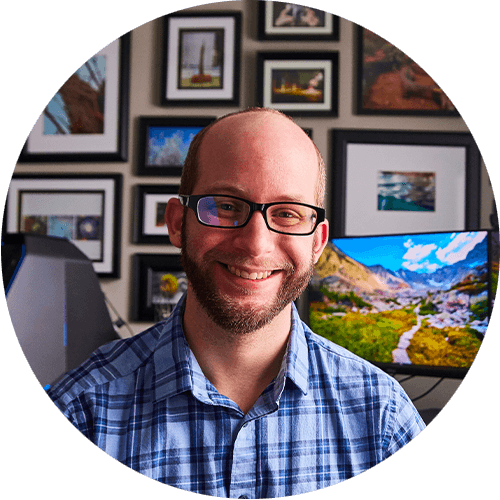
About the Author
Founder and visual artist, specializing in all aspects of a businesses presence from imagery and video to graphics and web. A graduate of IPFW with a Bachelor in Fine Arts, Concentration Photography as well as an Associates Degree in Business. His personal photography works are focused on landscape, travel, and aerial photography.





